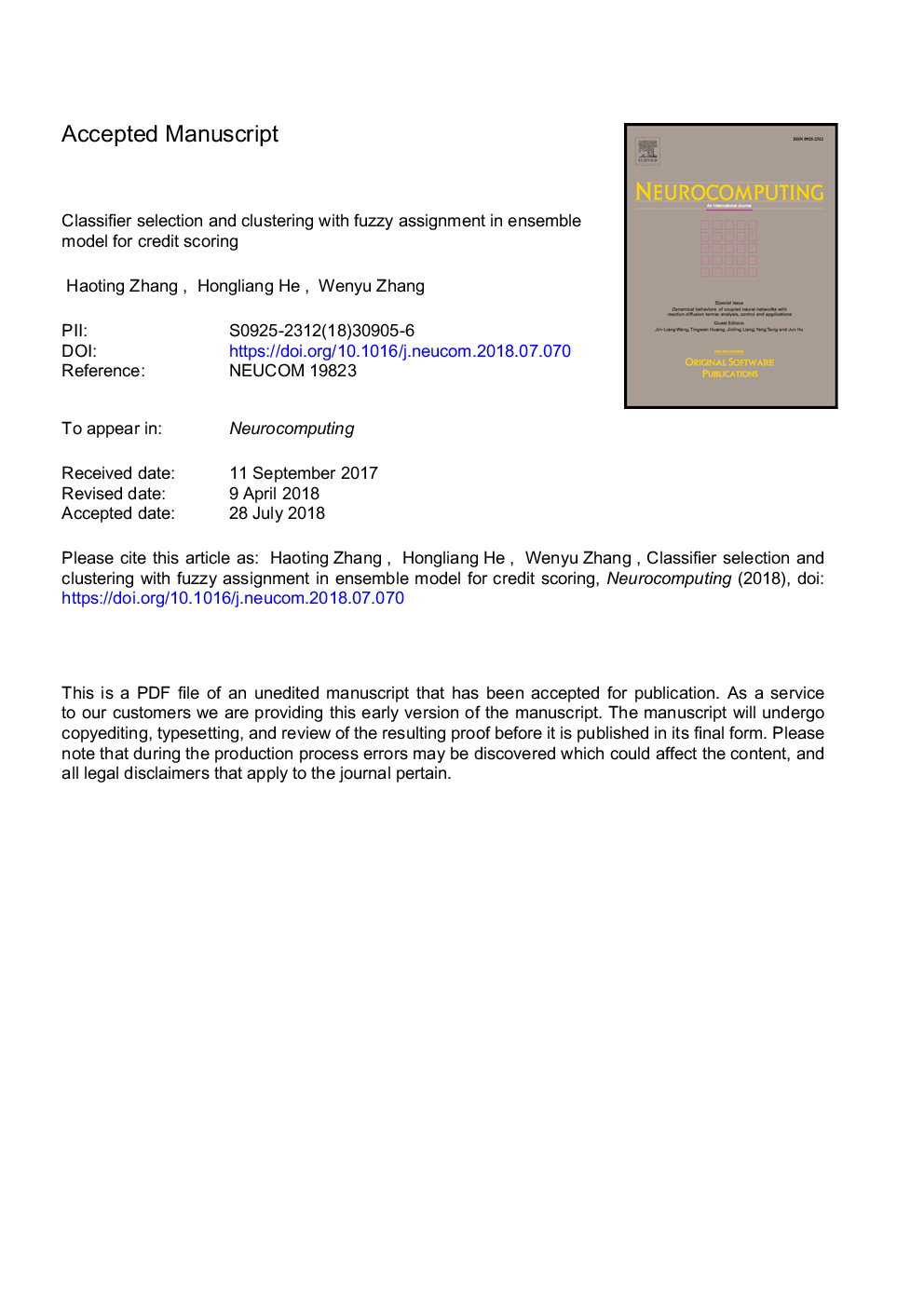| Article ID | Journal | Published Year | Pages | File Type |
|---|---|---|---|---|
| 8965176 | Neurocomputing | 2018 | 41 Pages |
Abstract
With the development of statistical methods and machine learning algorithms, credit scoring is no longer a task merely based on experience. From single base classifiers to ensemble classifiers and hybrid models, researches have been focusing on combining classifiers and hybridizing with artificial intelligence algorithms to improve performance of the models. Ensemble classifiers have been proven to have a better predictive accuracy than single classifiers, but the method of ensemble affects performance and is worth studying. This study is based on the ensemble of five of the most widely recognized base classifiers in credit scoring, i.e. logistic regression, support vector machine, neural network, gradient boosting decision tree and random forest. It proposes a new method of selecting classifiers using Genetic Algorithm after they are trained, considering both the accuracy and diversity of the ensemble. Besides, unsupervised clustering is integrated with a fuzzy assignment procedure in the model, to make more use of the data pattern and improve performance. The proposed CF-GA-Ens model is tested on three credit scoring datasets (Australian, German, Japanese) and three performance measures (accuracy, AUC, F-score), and the results show that our classifier selection and clustering procedures have a positive impact on all performance measures.
Related Topics
Physical Sciences and Engineering
Computer Science
Artificial Intelligence
Authors
Zhang Haoting, He Hongliang, Zhang Wenyu,
